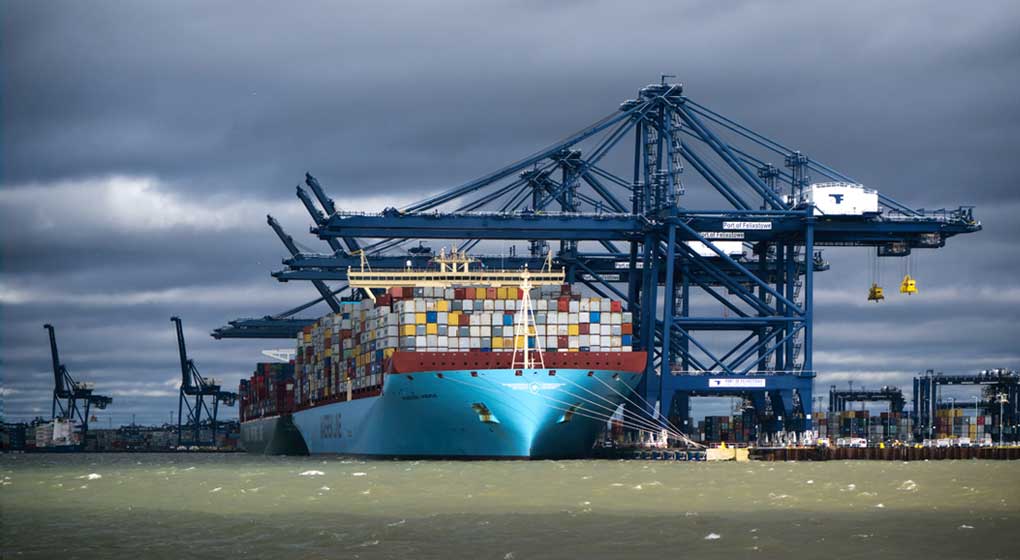Meat in the CPTPP sandwich
The UK Government has concluded negotiations on the UK’s accession to the Comprehensive and Progressive Agreement for Trans-Pacific Partnership (CPTPP), a free trade agreement (FTA) including eleven members: Australia, Brunei, Canada, Chile, Japan, Malaysia, Mexico, New Zealand, Peru, Singapore and Vietnam. It has yet to be ratified by all parliaments involved so there remains a process to undertake. But what will this new agreement mean for the British meat industry?
Proponents of the CPTPP would say that it is a trade bloc that is populated by around half a billion people with a joint gross domestic product (GDP) of £9 trillion in 2021. The combined GDP of the 11 CPTPP members and the UK was worth around £11 trillion in 2021.
In the four quarters to the end of Q3 2022, trade between UK and CPTPP was worth £110.9 billion, representing approximately 6.8 percent of total UK trade. UK exports to CPTPP countries were worth £60.5 billion over the same period.
Is the CPTPP necessary?
Those sceptical of the agreement would point out that the UK already had bilateral trade agreements with all countries in the CPTPP bar Brunei and Malaysia, some of which had been carried over from its EU membership. Indeed, the UK Government’s own estimate says the reduced red tape and improved market access would only boost GDP by £1.8 billion or 0.8 percent over 10 years.
On the face of it, the consensus is that the UK negotiators have done a good job of protecting the meat sector, which is not surprising given the backlash about the Australia and New Zealand deals. Certainly, the Canadian beef sector is very disappointed about its share of the deal and feels particularly aggrieved at having been treated differently to the Australians and New Zealanders. However, not all agricultural sectors are happy, particularly the egg producing sector which sees an enormous threat in the liquid egg market.
On the other side of the coin, it seems that some tough lessons have been learned by UK negotiators following the furore around the terms of the Australia and New Zealand deals
It is important to understand that this trade bloc does not operate in the same way as the EU; ie, it is not a single trading area. While agreements have been reached on tariffs and quotas with the bloc, it is worth noting that the UK already has bilateral agreements with nine of its eleven countries. Further negotiations will follow regarding sanitary and phytosanitary (SPS) standards with each individual country. These negotiations are not only complicated but also require inspectors to visit and approve individual plants – an important part of maintaining standards. Inspection visits are heavy on resource in both directions.
Through the agreement, UK businesses will be able to sell high-quality food and drink produce to millions of consumers in the CPTPP member countries. For example, the UK has secured access to Canada and Mexico’s CPTPP tariff schedule for dairy products, including cheese, access to Mexico’s beef, pork and poultry markets, and access to Canada’s poultry market.
On the other side of the coin, it seems that some tough lessons have been learned by UK negotiators following the furore around the terms of the Australia and New Zealand deals. This time, the UK has negotiated protections which mean that increased access to the UK market for sensitive agricultural produce will be staged over a significant period of time, giving producers in sensitive sectors time to adjust to any new trade flows. Permanent annual limits have been agreed regarding the amount of beef, pork and chicken that can be exported to the UK at a reduced or zero tariff from major producing countries.
Beef
For Brunei, Canada, Chile, Malaysia, Mexico and Peru: parties will share a single duty-free tariff-rate quota (TRQ) whose volume will increase incrementally over 10 years, capped at a permanent quota of 13,000 tonnes from year 10.
For Singapore: duties will remain at the base rate through year two and will be eliminated from year three, consistent with the bilateral FTA.
For Japan and Vietnam: duties will be eliminated at entry into force, consistent with the bilateral FTAs.
For Australia and New Zealand: beef will remain subject to the staging agreed under these members’ bilateral FTAs with the UK.
Pork
For Brunei, Canada, Chile, Malaysia, Mexico and Peru: parties will share a single duty-free TRQ whose volume will increase incrementally over 10 years, capped at a permanent quota of 55,000 tonnes from year 10.
For Singapore and Vietnam: parties will share the same TRQ as above, before duties are eliminated from years three and five respectively, consistent with the bilateral FTAs.
For Japan and New Zealand: duties will be eliminated at entry into force, consistent with the bilateral FTAs.
For Australia: pork will remain subject to most favoured nation (MFN) tariff rates, as agreed under the bilateral FTA.
Chicken
For Brunei, Canada, Chile, Malaysia, Mexico and Peru: parties will share a single duty-free TRQ whose volume will increase incrementally over 10 years, capped at a permanent quota of 10,000 tonnes from year 10.
For Singapore and Vietnam: parties will share the same TRQ as above, before duties are eliminated from years three and five respectively, consistent with the bilateral FTAs.
For Japan and New Zealand: duties will be eliminated at entry into force, consistent with the bilateral FTAs.
For Australia: chicken will remain subject to MFN rates, as agreed under the bilateral FTA.
Sheep meat
For Australia and New Zealand: sheep meat will remain subject to the staging agreed under these members’ bilateral FTAs with the UK.
Pros and cons
Joining the CPTPP could have both positive and negative impacts on the British red meat industry. On one hand, the CPTPP would provide UK red meat producers with improved market access to countries such as Malaysia and Vietnam, which could increase exports and potentially lead to increased profits. The CPTPP would also reduce tariffs on UK red meat exports, making them more competitive in these markets.
However, the agreement will also open the UK market to imports of red meat from other CPTPP countries, which could potentially lead to increased competition for UK producers. This could lead to lower prices for UK red meat, and in turn, lower profits for producers.
Overall, the impact of the CPTPP on the UK red meat industry will depend on a range of factors, including the specific terms of the agreements with individual countries, the level of competition from imports, and the ability of UK producers to take advantage of the improved market access provided by the agreement.
Over the next two to three years it is unlikely that anyone in the industry will be impacted for better or worse by this deal. For evidence of whether the UK’s accession to the CPTPP will have a positive or negative effect on its domestic industry, we’ll have to wait much longer for market forces to play out.
Of course, there is still one trade agreement yet to be negotiated that could potentially have the biggest impact on UK businesses regardless of which sector they’re in. Negotiations for the much-heralded agreement with the US began in May 2020 but halted in October of that year. According to the latest update from the UK Government: “An agreement is not expected soon.”
In the meantime, the UK has been seeking Memorandums of Understanding with individual US states. These are not full trade agreements and do not reduce tariffs, but so far three have been signed with Indiana and North and South Carolina.







